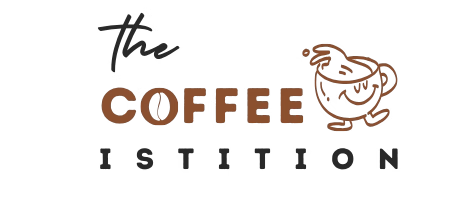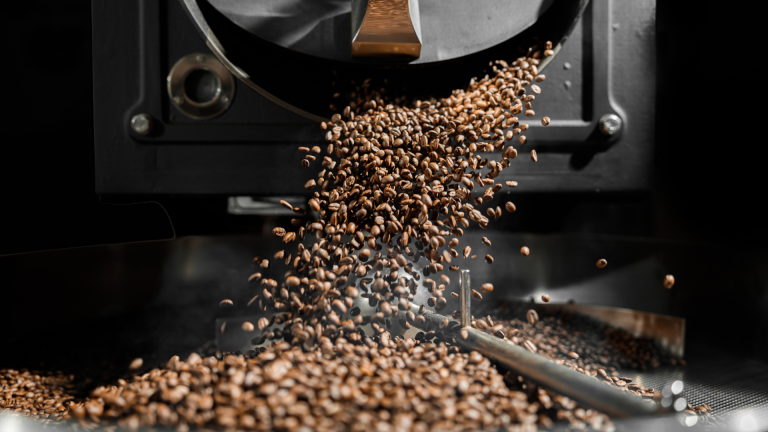
The debate between green and brown has never been more critical for your daily well-being routine. When it comes to the health benefits of matcha vs coffee, you’re choosing between two powerful beverages that can shape your energy levels, stress response, and long-term health. Matcha, with its unique offering of sustained energy and calming effects, stands out, intriguing those who seek a more balanced and long-lasting energy boost. Coffee, on the other hand, provides quick alertness with potential jitters. This detailed comparison will help you make an informed choice that aligns with your lifestyle and health goals.
Infographic comparing the health benefits and caffeine content of matcha versus coffee.
Understanding the Basics
Matcha comes from specially grown green tea leaves that are stone-ground into a fine powder. The tea plants grow in shade for several weeks before harvest, which boosts chlorophyll and amino acid content. When drinking matcha, you consume the entire leaf, not just an extract, as is the case with regular tea.
Coffee begins as coffee beans from the Coffea plant. These beans get roasted, ground, and brewed with hot water. The brewing process extracts compounds from the beans, but you don’t consume the actual coffee grounds.
Both beverages contain caffeine and beneficial plant compounds. However, their unique growing and processing methods create very different nutritional profiles. When comparing health benefits, such as those of matcha versus coffee, these differences become crucial for your daily wellness.
Vibrant green ceremonial grade matcha powder in a bowl next to its container.
The key difference lies in how your body processes each drink. Matcha contains L-theanine, an amino acid that works in conjunction with caffeine to create a calm yet focused state, a unique feature not found in coffee. Coffee lacks this compound, leading to more intense but shorter-lasting effects.
Caffeine Content and Energy Release Patterns
The health benefits comparison between matcha and coffee begins with understanding the caffeine content. A typical serving of matcha contains 38-88 milligrams of caffeine, while an 8-ounce cup of coffee contains 95-150 milligrams. This difference is crucial in managing your energy levels throughout the day.
Coffee provides an immediate energy spike within 30 minutes. Your energy peaks quickly but often crashes 3-4 hours later. This roller coaster effect can leave you feeling tired and reaching for another cup.
Matcha offers a gentler energy curve that lasts 6-8 hours. The L-theanine slows caffeine absorption, preventing the spike-and-crash pattern. You get sustained alertness without the jittery feeling.
Energy levels comparison showing matcha’s sustained release vs coffee’s spike and crash pattern
Your body processes these beverages differently due to their unique compounds. Coffee increases adrenaline and cortisol levels, creating that familiar rush. Matcha promotes alpha brain waves, associated with calm alertness. This explains why matcha users report feeling focused but relaxed.
The health benefits of matcha vs coffee extend beyond just energy levels. Coffee’s quick absorption can disrupt sleep if consumed after noon, a factor that should be taken into consideration. Matcha’s slower release makes it safer for consumption in the afternoon, promoting a more balanced approach to energy management.
Antioxidant Powerhouse Comparison
Antioxidants represent the most significant difference in health benefits between matcha and coffee. Matcha contains significantly higher levels of catechins, particularly epigallocatechin gallate (EGCG). One gram of matcha provides as many antioxidants as 10 cups of regular green tea.
The ORAC (Oxygen Radical Absorbance Capacity) score measures antioxidant strength. Matcha scores 1,573 points per serving, while coffee ranges from 200 to 550 points. This significant difference affects your body’s ability to combat free radicals.
EGCG accounts for approximately 60% of matcha’s catechins. This powerful compound supports cellular health and may help protect against chronic diseases. Coffee contains polyphenols and chlorogenic acids, but in much lower concentrations.
The health benefits of matcha vs coffee become clear when examining antioxidant bioavailability. Matcha’s shade-growing process concentrates these compounds. Coffee’s roasting process can reduce some beneficial compounds.
This comprehensive health benefits comparison across eight key wellness categories will provide you with a holistic understanding of the matcha vs coffee debate, empowering you to make an informed decision that aligns with your health goals and instilling confidence in your choice.
Your daily antioxidant intake significantly increases with matcha consumption. Two cups of matcha provide more protective compounds than most people get from fruits and vegetables combined. Coffee contributes to antioxidant intake, but at much lower levels.
Brain Health and Cognitive Function
The cognitive health benefits of matcha vs coffee reveal fascinating differences. L-theanine creates a unique synergy with caffeine that coffee cannot match. This combination enhances attention, memory, and reaction time while reducing anxiety.
Matcha promotes the production of GABA, serotonin, and dopamine. These neurotransmitters regulate mood, focus, and relaxation. Coffee primarily affects adenosine receptors, providing alertness but potentially increasing anxiety.
Alpha brain waves increase within 30-45 minutes of consuming matcha. These waves indicate a relaxed but alert mental state ideal for learning and creativity. Coffee can produce beta waves associated with active thinking, but it can also induce stress.
The neuroprotective health benefits of matcha vs coffee extend to long-term brain health. EGCG may help protect brain cells from damage and support cognitive function as you age, instilling a sense of optimism and forward-thinking in your health choices. Coffee’s benefits focus more on short-term alertness and mood enhancement.
Nutritional breakdown comparing key health compounds in matcha versus coffee per serving
Research indicates that regular matcha consumption supports improved concentration and reduces mind wandering. Coffee users often experience improved alertness but may struggle with focus stability. The sustained cognitive benefits make matcha appealing for students and professionals.
Cardiovascular Health Benefits
Heart health represents another crucial aspect of overall health benefits, particularly when comparing matcha to coffee. Both beverages offer cardiovascular protection, but through different mechanisms. Filtered coffee shows promise for heart health, while unfiltered coffee may increase cholesterol levels.
Matcha’s catechins support healthy blood pressure and cholesterol levels. The antioxidants help protect blood vessels from damage and inflammation. L-theanine also promotes relaxation, which benefits cardiovascular function.
Coffee’s cardiovascular benefits depend heavily on the method of preparation. Filtered coffee removes diterpenes that can raise LDL cholesterol. Unfiltered coffee, like Turkish or French press, contains higher levels of these compounds.
The health benefits of matcha vs coffee for heart health favor consistency. Matcha offers steady cardiovascular support, regardless of the preparation method. Coffee requires careful brewing choices to maximize benefits.
Regular consumption patterns also play a significant role in cardiovascular health. Matcha’s gentle effects on blood pressure make it suitable for people with heart conditions. Coffee’s stimulating effects may not be appropriate for everyone.
Digestive Health and Gut Microbiome
The gut health benefits of matcha vs coffee reveal significant differences. Matcha contains prebiotic fibers that feed beneficial gut bacteria. These compounds support digestive wellness and immune function.
Galactooligosaccharides (GOS) in matcha support the growth of beneficial bacteria, such as Bifidobacteria and Lactobacilli. These bacteria produce short-chain fatty acids that support colon health. Coffee’s effects on gut bacteria are mixed and depend on individual tolerance.
Matcha’s alkaline properties help balance stomach acid. The gentle compounds rarely cause digestive upset, even on an empty stomach. Coffee’s acidity can irritate sensitive stomachs and may worsen acid reflux.
The anti-inflammatory health benefits of matcha vs coffee extend to digestive comfort. EGCG helps reduce inflammation in the digestive tract. Coffee can sometimes exacerbate inflammation, particularly in individuals with sensitive reactions to it.
Fermentation patterns in your gut improve with regular matcha consumption. The prebiotic effects support overall digestive health and may boost immune function. Coffee lacks these specific gut-supporting compounds.
Stress, Anxiety, and Sleep Quality
Mental wellness represents a key difference in health benefits between matcha and coffee. L-theanine directly counteracts caffeine’s anxiety-inducing effects. This creates calm energy instead of jittery stimulation.
Matcha helps reduce cortisol levels while providing a boost of energy. Coffee typically increases both cortisol and adrenaline, which can heighten stress responses. For anxiety-prone individuals, this difference is crucial.
Sleep quality improves when switching from coffee to matcha. Matcha’s gentler effects wear off gradually without disrupting sleep patterns. Coffee consumed after noon often interferes with nighttime rest.
The calming health benefits of matcha compared to coffee make matcha an ideal choice for meditation and focus work. Traditional tea ceremonies emphasize mindfulness and presence. Coffee culture tends to focus more on productivity and speed.
Traditional bamboo matcha whisk (chasen) in a ceramic holder, alongside a bowl on a wooden tray, depicting essential tools for tea preparation.
Stress management becomes easier with matcha’s balanced energy profile. You get alertness without the fight-or-flight response that coffee can trigger. This makes matcha better for sustained mental work and creativity.
Special Populations and Considerations
The health benefits of pregnancy safety differ significantly between matcha and coffee. Pregnant women can typically enjoy 1-2 cups of matcha daily. Coffee recommendations are more restrictive, usually limiting consumption to one cup.
Athletes may prefer matcha for sustained energy during training. The steady release of caffeine prevents energy crashes during the workout. Coffee’s quick spike can lead to energy drops during extended exercise.
Seniors often find matcha more tolerable than coffee. The lower caffeine content and calming effects are suitable for age-related sensitivity. Coffee’s more substantial effects may disrupt sleep or increase anxiety in older adults.
People with anxiety disorders typically benefit more from matcha. The L-theanine content actively reduces anxiety symptoms. Coffee can worsen anxiety and panic symptoms in sensitive individuals.
Heart patients should consider the gentler effects when comparing the health benefits of matcha vs coffee. Matcha’s blood pressure benefits make it a heart-friendly option. Coffee may need medical clearance for people with certain heart conditions.
Preparation, Cost, and Practical Considerations
Preparation methods significantly impact the health benefits of matcha vs coffee. Traditional matcha requires specific tools and techniques for optimal results. Coffee preparation varies widely, but it generally requires less precision and attention to detail.
A traditional matcha tea ceremony set featuring a ceramic bowl, bamboo whisk, and other essential tools for preparation.
The whisking process for matcha incorporates air, creating the characteristic foam. Water temperature matters more for matcha than coffee. Too-hot water destroys delicate compounds and creates bitterness.
Illustrated steps for preparing a cup of matcha green tea.
A cost comparison shows that matcha typically costs more per serving. Quality matcha ranges from $0.40 to $0.80 per cup. Coffee costs $0.22 to $0.83, depending on its quality and the preparation method.
Equipment investment differs between the two beverages. Matcha requires a bamboo whisk, a bowl, and a sifter for optimal results. Coffee needs a grinder and a brewing device. Both require some learning curve for optimal preparation.
Availability affects practical choices in health benefits, such as selecting a suitable match for coffee. Coffee is widely available in most locations. High-quality matcha is often available only through specialty stores or online ordering.
Side Effects and Precautions
Safety considerations are essential when comparing the health benefits of matcha vs coffee. Matcha’s lower caffeine content reduces the risk of side effects. Most people can consume 1-3 cups daily without problems.
Coffee’s higher caffeine content increases the potential for side effects. Jitters, anxiety, and sleep disruption are more common with coffee. Individual tolerance varies significantly.
Drug interactions occur more frequently with coffee than with matcha. Coffee affects the absorption of certain medications. Matcha has fewer known interactions but still requires caution with some drugs.
Withdrawal symptoms tend to be milder when stopping matcha versus coffee. Coffee dependence develops more quickly due to higher caffeine levels. Matcha users report gentler transitions when changing consumption patterns.
Quality matters for safety in both beverages. Low-grade matcha may contain contaminants or added ingredients. Poor-quality coffee can contain mycotoxins or excessive pesticides.
A bowl of whisked ceremonial grade matcha tea with a tin of matcha powder and traditional preparation tools.
Conclusion and Recommendations
A comparison of health benefits between matcha and coffee reveals clear advantages for matcha in most wellness categories. Matcha provides sustained energy, superior antioxidants, and stress-reducing compounds. Coffee offers quick alertness but with more potential side effects.
Your choice depends on personal goals and tolerance. If you want calm focus and long-term health benefits, matcha is superior. If you need immediate alertness and don’t mind potential crashes, coffee works.
Consider starting with one cup of matcha daily if you’re switching from coffee. The transition allows your body to adjust to different caffeine patterns. Most people find the sustained energy and improved mood worth the adjustment period.
A collection of various matcha powders and prepared matcha tea from different brands.
The optimal approach might include both beverages strategically. Morning matcha for sustained energy and occasional coffee for immediate needs. This combination maximizes the health benefits of matcha versus coffee while minimizing its drawbacks.
Quality matters more than quantity for both beverages. Opt for ceremonial-grade matcha and freshly roasted, filtered coffee for optimal health benefits. Your investment in quality pays dividends in wellness outcomes.
Remember that individual responses vary significantly. Some people thrive on coffee while others prefer matcha’s gentler approach. Listen to your body and adjust consumption based on how you feel. The best beverage for health benefits, matcha vs coffee, is the one that supports your individual wellness goals.
